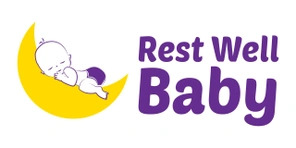Blog

4 Month Sleep Regression:
Navigating the 4-Month Sleep Regression: You Are Not Alone!
As a Certified Gentle Sleep Coach, one of the most common topics that brings families to my virtual doorstep is the infamous 4-month sleep regression. Just when you thought you were starting to figure out this whole sleep thing, BAM! Suddenly, your previously decent sleeper is waking frequently throughout the night, skipping naps, and generally seems…unsettled. Trust me, you are not alone, and more importantly, this phase is temporary.
So, what exactly is the 4-month sleep regression? It's not just a few bad nights; it's a permanent change in your baby's sleep architecture. Around this age, your baby's sleep cycles mature to resemble those of an adult, with distinct stages of light and deep sleep. This means they now transition between these stages more frequently throughout the night, which can lead to more wakeups.
In addition, this regression often coincides with significant developmental milestones. Your baby might be learning to roll over, showing increased awareness of their surroundings, and experiencing rapid cognitive growth. All this exciting development can disrupt their sleep as their little brains are working overtime. Teething can also sometimes play a role around this age, adding another layer of discomfort.
What might you be experiencing during the 4-month sleep regression?
Increased night wakings: Your baby who might have been sleeping longer stretches is now waking more frequently at night.
Shorter naps: Those lovely long naps might suddenly become frustratingly short, leaving you feeling like you barely had time to breathe.
Difficulty settling: Your baby might resist bedtime or naptime, even with your usual soothing techniques.
Increased fussiness: The lack of sleep can understandably lead to a more irritable and fussy baby throughout the day.
Changes in appetite: You might notice your baby wanting to feed more frequently, even during the night, as they seek comfort or their disrupted sleep patterns affect their usual feeding schedule. Conversely, some babies may show a temporary decrease in appetite due to general fussiness and increased awareness of the world around them.
So, how can you navigate this challenging phase? Here are some gentle and effective strategies:
Focus on a Consistent Bedtime Routine: A predictable and calming routine signals to your baby that it’s time to wind down for sleep. This could include a warm bath, a gentle massage, reading a book, and singing a lullaby.
Optimize the Sleep Environment: Ensure your baby’s room is dark, quiet, and a comfortable temperature. Consider using white noise to block out distracting sounds.
Prioritize Good Daytime Feeds: During the day, do your best to offer full, satisfying feeds. A well-fed baby is less likely to wake frequently out of hunger overnight.
Aim for Age-Appropriate Naps (Safely): While naps might be disrupted, continue to offer naps at age-appropriate intervals. Get those naps in however they safely work for your family – whether it's in a crib, carrier, stroller, or with contact. Remember that safe sleep guidelines should always be followed, especially for unsupervised naps.
Prioritize Your Own Well-being: Remember that you can’t pour from an empty cup. Try to nap when your baby naps (even if it’s just for 20 minutes), ask for help from your partner or support system, and don’t be afraid to take breaks.
The 4-month sleep regression can feel like a significant setback, but it's a normal and important part of your baby's development. Remember, this too shall pass, and brighter, more rested days (and nights!) are ahead. If you're feeling overwhelmed, don't hesitate to reach out for personalized support. You've got this!
Yours in sleep,
Tracie / Rest Well Baby
www.restwellbaby.com
Tracie Kesatie is a Certified Gentle Sleep Coach dedicated to helping families with little ones 0-10 years of age achieve a restful night's sleep.
Disclaimer: This article provides general information and is not intended as medical advice. Always consult with your pediatrician for any concerns about your child's health.
Blog





